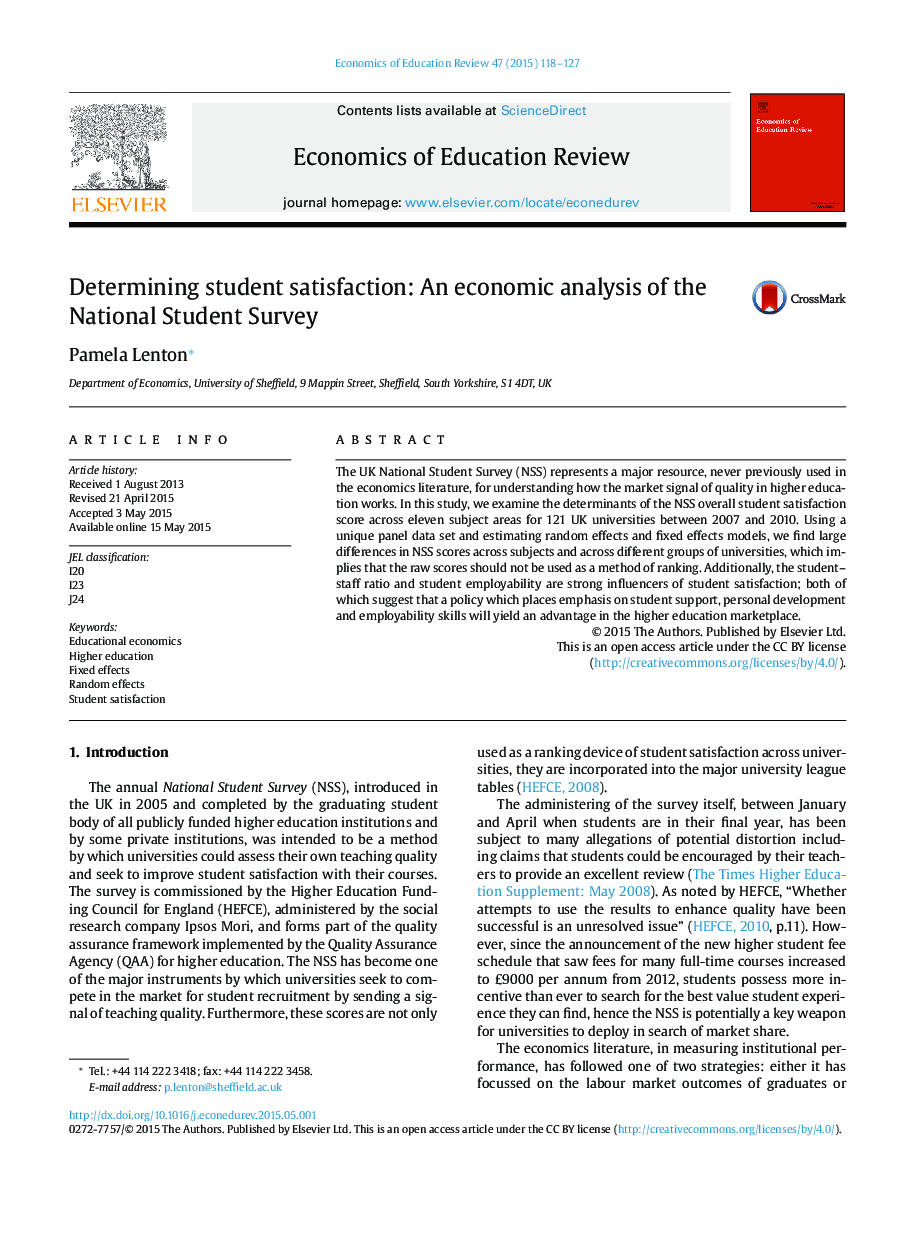| Article ID | Journal | Published Year | Pages | File Type |
|---|---|---|---|---|
| 6840857 | Economics of Education Review | 2015 | 10 Pages |
Abstract
The UK National Student Survey (NSS) represents a major resource, never previously used in the economics literature, for understanding how the market signal of quality in higher education works. In this study, we examine the determinants of the NSS overall student satisfaction score across eleven subject areas for 121 UK universities between 2007 and 2010. Using a unique panel data set and estimating random effects and fixed effects models, we find large differences in NSS scores across subjects and across different groups of universities, which implies that the raw scores should not be used as a method of ranking. Additionally, the student-staff ratio and student employability are strong influencers of student satisfaction; both of which suggest that a policy which places emphasis on student support, personal development and employability skills will yield an advantage in the higher education marketplace.
Keywords
Related Topics
Social Sciences and Humanities
Economics, Econometrics and Finance
Economics and Econometrics
Authors
Pamela Lenton,
